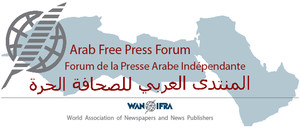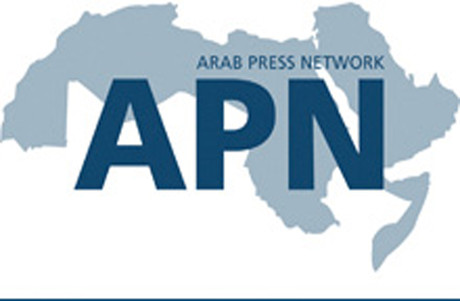Continued government intervention, inadequate professional training and support for independent media, and a poor understanding of audience were cited as reasons for the lack of independent news and information by participants at the Forum, organised by the World Association of Newspapers and News Publishers (WAN-IFRA), in partnership with UNESCO.
“There is a threat at the moment in all Arab countries. The media are being divided into two parts, one loyal to the government, the other to the opposition,” said Kamel Labidi, Director of the Association for Democracy and the Civil State (Vigilance) in Tunisia. “The answer to this is the independent media that is not beholden to one part or the other.”
Omar Bellouchet, Publisher of the independent Algerian newspaper El Watan, said readers expect independent media to be pluralistic, credible and fair. But they also expect media to report on issues beyond the traditional “politics only” subject that dominate government controlled media.
“We surveyed public opinion, both in the newspaper and online, and this survey showed our reader needs are evolving, and this obliges us to reconsider our working methods,” he said. “We see a rising desire among readers to read more about things they’re not use to reading – issues concerning the environment, public health, issues like the role of women in society.
“Quality journalism is not exclusive for American or European media,” he said. “Arab readers have the right to see in their daily newspapers quality journalism. And if Arab newspapers want to become more autonomous from government authorities, traditional media needs to develop quality journalism.”
The 6th Arab Free Press Forum not only examines government actions that inhibit the role of the press, through legislative barriers and other means, but also addresses editorial policies that inspire public trust, sustainable business practices, innovations in newsrooms, improved safety practices and digital surveillance.
It brings together publishers, editors, journalists and press freedom advocates from across North Africa, the Middle East and the Gulf to meet and exchange ideas, experience and best practices. Presentations and other digital resources from the Forum can be found at http://www.wan-ifra.org/node/94541
The Forum, which continues through Tuesday can also be followed on Twitter with #AFPF13.
Among the conditions necessary for the independent media to grow and thrive presented by WAN-IFRA were:
- An environment in which journalists are able to carry out their duties without fear of violence.
- An independent judiciary that cannot be used to punish the press at the whim of the government, and a system that responds to attacks on journalists with swift investigations and prosecutions.
- The abolition of insult laws, criminal defamation laws and all jail sentences for press offences.
- A system of political alternance.
- Liberalised access to government and other public records.
- Trade bodies and other associations representing the common interests of news media, and comprehensive training schemes for journalism, ethics, and business strategies and practices.
WAN-IFRA’s partners in the Forum include UNESCO and its offices in Tunis and Cairo, the Swedish International Development Cooperation Agency (Sida), the government of Canada, International Media Support (IMS), the Ethical Journalism Network, Free Press Unlimited, Canal France Internationale (CFI), Egypt Media Development Program (EMDP), "Yakadha" Association for Democracy and a Civil State (Vigilance), NAWAAT.org, the Tunisian Centre for Press Freedom, the African Centre for Training of Journalists and Communicators (CAPJC), the National Union of Tunisian Journalists (SNJT), the Union of Independent and Partisan Newspapers (SJIP), Egypt’s Al-Shorouk newspaper, and Beirut’s An-Nahar newspaper.
WAN-IFRA, based in Paris, France, and Darmstadt, Germany, with subsidiaries in Singapore and India, is the global organisation of the world’s newspapers and news publishers. It represents more than 18,000 publications, 15,000 online sites and over 3,000 companies in more than 120 countries. Its core mission is to defend and promote press freedom, quality journalism and editorial integrity and the development of prosperous businesses.
Inquiries to: Larry Kilman, Deputy CEO and Director of Communications and Public Affairs, WAN-IFRA, 96 bis, rue Beaubourg, 75003 Paris France. Tel: +33 1 47 42 85 07. Fax: +33 1 42 78 92 33. Mobile: +33 6 10 28 97 36. E-mail: larry.kilman@wan-ifra.org





